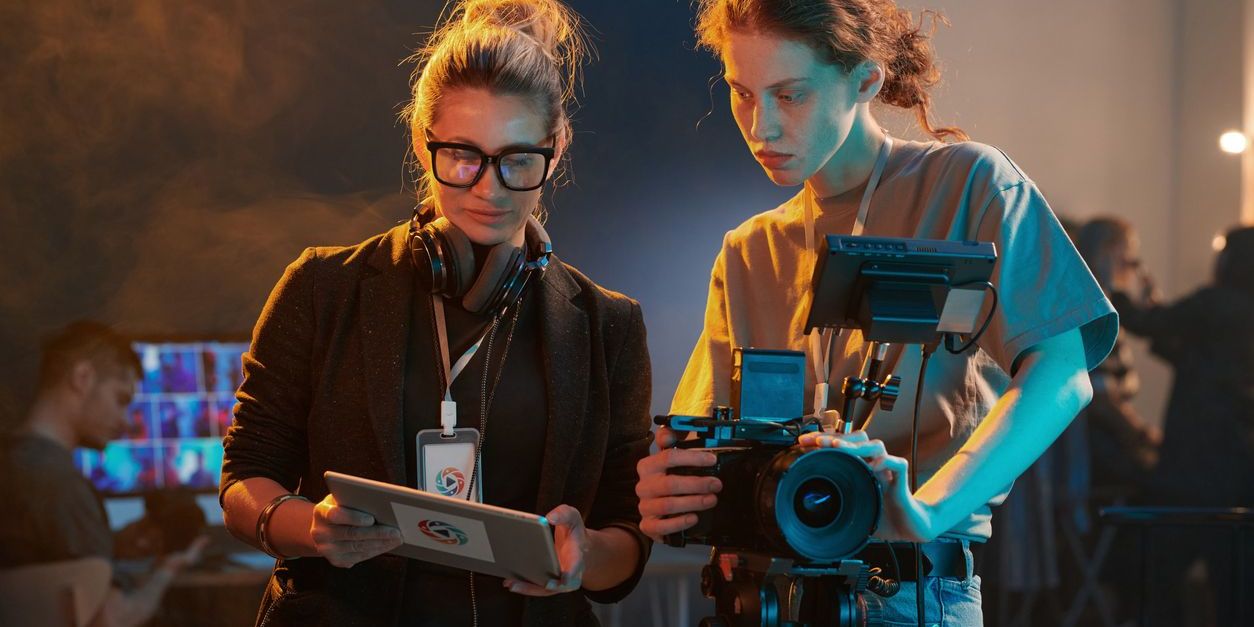What is a Television Director?
A television director is responsible for overseeing the creative and technical aspects of making a TV show. They work closely with producers, writers, and actors to bring each episode to life, making sure the story is told clearly and effectively. Whether it’s a drama, comedy, talk show, or live broadcast, the director plays a big role in shaping how the show looks and feels.
This job requires strong communication and problem-solving skills, as things often move quickly on set. Television directors often work long hours and must balance creative ideas with production schedules and budgets. It’s a fast-paced environment where teamwork and focus are essential.
What does a Television Director do?

Duties and Responsibilities
The duties and responsibilities of a television director are centered around bringing a TV show to life, ensuring that all creative and technical elements come together smoothly. Here are key responsibilities associated with the role:
- Show Direction: Directing actors' performances, guiding them through their scenes, and ensuring their interpretations align with the script's intent. This includes making decisions about tone, pacing, and how scenes are portrayed on screen.
- Technical Coordination: Collaborating with the crew to determine camera angles, lighting, and sound to create the desired visual effect. This involves making key decisions about shot composition and maintaining the overall visual style of the show.
- Rehearsal Oversight: Leading rehearsals, providing feedback to actors, and ensuring that scenes are well-prepared before shooting. Directors also handle any issues or challenges that arise during production, ensuring that everything runs smoothly and efficiently.
Types of Television Directors
Television directors can specialize in different types of programming, and their roles can vary depending on the genre and style of the show. Here are some common types of television directors:
- Drama Director: Specializes in directing scripted, dramatic series, focusing on performances, pacing, and emotional depth. They work with actors and crew to bring a narrative to life, ensuring that every episode stays true to the tone of the show.
- Comedy Director: Focuses on directing sitcoms, sketch comedies, or stand-up specials, where timing, humor, and character interactions are key. They collaborate with actors to perfect comedic timing and work with editors to enhance comedic effects during post-production.
- Reality Show Director: Directs unscripted television shows, like competitions or lifestyle series. Reality show directors manage the flow of the show, ensure participants are engaging, and adapt to the unpredictable nature of unscripted content.
- Talk Show Director: Directs the production of talk shows, ensuring the smooth execution of interviews, live audience reactions, and segments. They also coordinate the timing and camera shots to maintain the pacing of the show.
- News Director: Oversees the production of news programming, managing both the content and the technical side of news broadcasts. News directors ensure that stories are accurately presented while meeting tight deadlines.
Television directors have distinct personalities. Think you might match up? Take the free career test to find out if television director is one of your top career matches. Take the free test now Learn more about the career test
What is the workplace of a Television Director like?
The workplace of a television director is dynamic and often fast-paced, requiring a high level of organization and communication. Television directors typically work in studio environments, on sets, or in control rooms, collaborating closely with producers, writers, camera operators, and actors. Depending on the type of program, they may spend long hours on set to ensure every detail of the production runs smoothly.
In addition to the physical set, television directors also work in production offices, where they plan the logistics of each episode, review scripts, and conduct meetings with the production team. These environments are often collaborative, with directors offering feedback and guidance to various departments, from lighting to sound. In live broadcasts or reality shows, directors often work under time constraints, making quick decisions to adjust to any unexpected issues.
Television directors may also work from home or remote locations when reviewing footage or brainstorming creative concepts. While much of their time is spent on set during filming, they also play a significant role in post-production, working with editors to ensure that the final product aligns with their creative vision. The work environment is often high-pressure but rewarding, requiring adaptability and strong problem-solving skills.
Television Directors are also known as:
TV Director